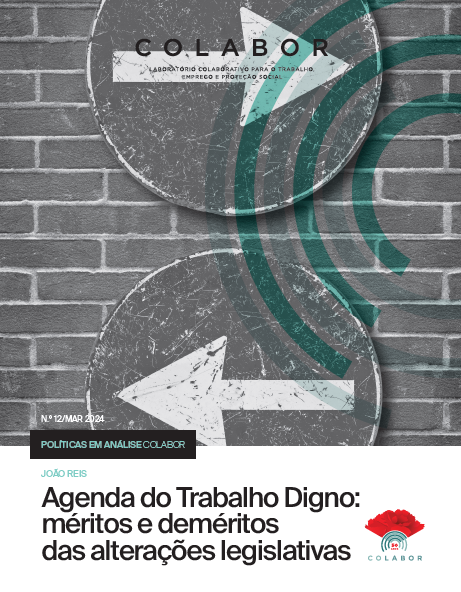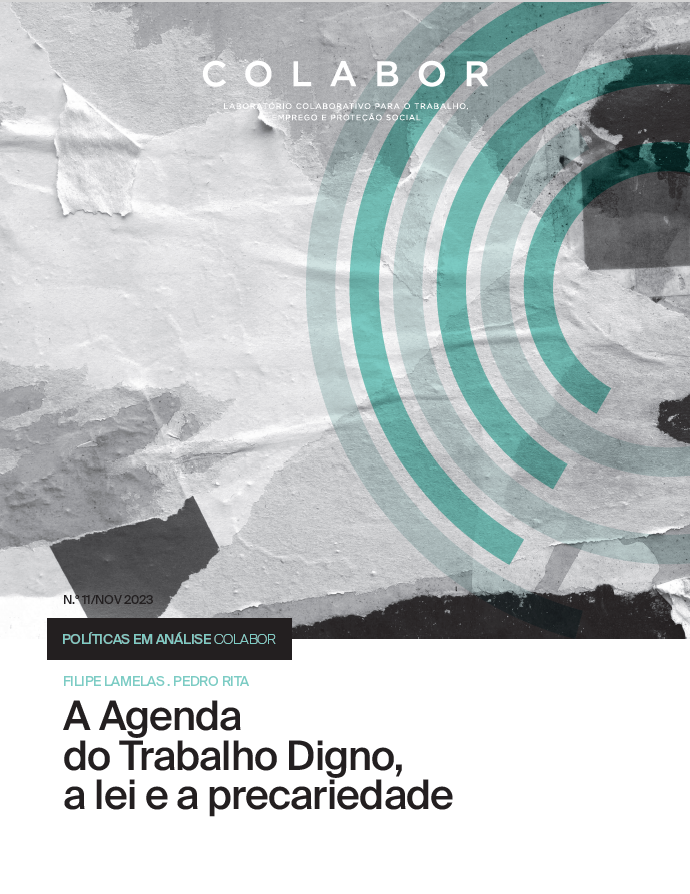
Policies in Analysis

Decent Work Agenda: merits and demerits of legislative changes
Policy No. 12 - "The Decent Work Agenda: merits and demerits of legislative changes" - is the result of a paper presented by Professor João Reis, Professor of Law at the Faculty of Law of the University of Coimbra (FDUC), at the event promoted by CoLABOR entitled "Decent Work. Context and readings of the agenda".
In addition to analyzing the main merits and demerits of the legislative changes introduced in the Decent Work Agenda (Law no. 13/2023, of April 3), this text also mentions the fact that some rules that undermine the dignity of workers have been retained in the Labor Code.

The Decent Work Agenda, the law and precariousness
Policy 11 is dedicated to the theme "The Decent Work Agenda, the law and precariousness".
While acknowledging the relevance and usefulness of many of the changes to the Labor Code introduced by Law 13/2023 for job stability and security, it cannot be denied that the goal of decent work has not been achieved with the recent revision. This text carries out this critical analysis.

The ban on outsourcing services in the 2023 labor reform
The ban on hiring outsourcing services to meet the needs of workers whose jobs have been covered by collective dismissal or job extinction, set out in the Decent Work Agenda, was included in Law no. 13/2023, of April 3, which amends the Labor Code.

From the Decent Work Agenda to the government program
The area of work and labor relations, due to its social, political and economic importance, is one of the structuring vectors of any government strategy. Underpinned by the ideas of decent work and valuing workers, the Agenda identifies a number of issues and aims to restore a fairer model of labor relations, despite the omission of key issues to promote dignity at work and job security.
